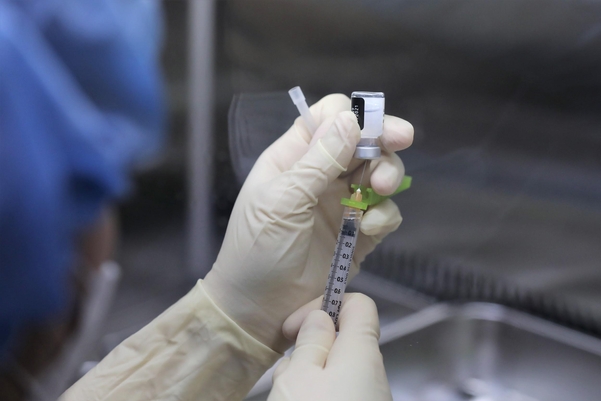Input 2021.02.27 15:28

However, if you have a severe allergic reaction,’anaphylaxis’, you should call 911 immediately. Anaphylaxis is a rapid systemic reaction that occurs within minutes or hours due to certain foods or drugs. Damage compensation for adverse reactions must be recognized for causality with the vaccination department, and 430 million won is paid in case of severe disability or death.
According to the Korea Centers for Disease Control and Prevention on the 27th, adverse reactions that may appear after receiving the Corona 19 vaccine include local reactions such as pain, swelling and redness at the vaccination site, to systemic reactions such as fever, fatigue, headache, and vomiting. This is a phenomenon that can occur during normal immunization. Most often, symptoms disappear within 3 days after vaccination.

Local reactions included pain at the injection site (84.1%), swelling (10.5%), and redness (9.5%). Systemic reactions such as fatigue (62.9%), headache (55.1%), muscle pain (38.3%), and chills (31.9%) also appeared.
In addition to the common symptoms, 4 cases of acute facial palsy occurred. Allergic reactions were reported during post-clinical large-scale vaccinations.
When the Pfizer vaccine was vaccinated against 1893,000 people including health care workers in the United States on December 14-23 last year, 0.2% (4393 people) had an allergic reaction.
Of these, 175 cases that were likely to be severe were examined closely, and as a result, 21 were anaphylaxis and 83 were allergic to non-anaphylaxis. The rest were cases of fainting or anxiety regardless of allergies.

Health officials recommend that you stay at the vaccination facility for at least 15 minutes, usually 30 minutes after vaccination, and check for adverse reactions.
Corona 19 Vaccination Response Promotion Team said, “Even after you return home, you should observe whether any adverse reactions appear after vaccination for at least 3 hours,” and “Elderly people should not be alone but with someone else so that they can get help when symptoms occur after vaccination. Good,” he advised.
Also, on the day of vaccination, as with other vaccinations, excessive activity, alcohol and sauna should be avoided. For mild pain, apply a cold compress to the pain area with a clean towel or, if you have a mild fever, drink enough fluids and take a break to relieve symptoms.
If you have systemic pain, taking pain relievers may also help. It may be helpful to use an analgesic with acetaminophen, which has analgesic and antipyretic effects, rather than an anti-inflammatory form.
The first vaccination for all 55,000 medical staff treating COVID-19 patients will be completed on the 20th of the following month. The second vaccination is expected to end on April 10, three weeks later.
